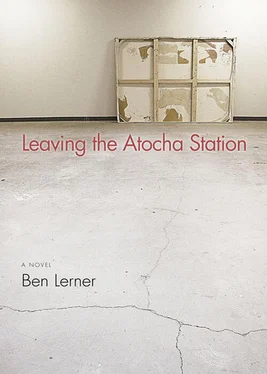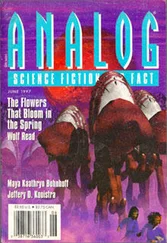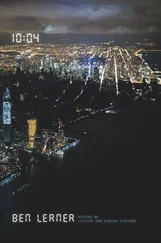“What did that guy say to you when he left?” I asked.
“What guy?” she asked.
“Carlos,” I said.
“Nothing,” she said.
“He whispered something to you when he was saying good-bye and you laughed,” I reminded her.
“I don’t remember,” she lied. I was furious.
“When do you think you’ll be back?” I asked, careful not to reveal my anger.
“I’m not sure,” she said.
“If it’s O.K., I will stay here for a while. Then I have to meet someone,” I said.
“O.K.,” she said. I couldn’t believe she wasn’t going to ask me who. “Take those keys,” she said, pointing to a hook by the door. “You can leave the elevator unlocked; the bigger key is for the front,” she said.
“O.K.,” I said, my fury tempered by the offer of the keys.
“Let’s go over the poems tomorrow,” she said. “I want to select a couple of the new ones to translate.”
“Sure,” I said. I didn’t care about the poems.
“Unless you don’t care about the poems,” she said. Her eyes were neither wide nor squinted and she was not smiling. I was pleased to see her angry.
“I’m not very interested in poetry at a time like this,” I said, suggesting she was focused on petty personal concerns at a moment of historical unrest. “Tomorrow is the election,” I said, as though she might have forgotten.
She looked angrier. “And what are you planning to do tomorrow?” she asked. “How are you going to participate in this historic moment?”
“It’s not my country,” I said, my face asserting this statement had many simultaneous registers of significance. I thought I saw her sound them in her head.
“Bueno,” she said, which can mean anything, and left.
I walked onto the balcony to find it was fully night and watched her go. When I couldn’t see her anymore I went back into the apartment. I looked around her desk, found what looked like a diary, and opened it; it was full of poems in what I supposed was her hand. They were replete with words I didn’t know and that I assumed must be very specific nouns: grackle, night-blooming jasmine, hollow-point shells — I had no idea. I assigned a meaning more or less at random to each unfamiliar word and then the poems were lovely. I began to read one aloud but my voice sounded strange in the empty apartment and I stopped, again remembering Zalacaín. I searched the journal to see if there were peoples’ names in any of the poems, Adán, Carlos, etc.; there weren’t. On one of the pages there was a stain, probably coffee, but it made me think of blood. I imagined Teresa writing in the journal on a train and I imagined the train exploding.
I put the journal down. I felt stupid for not going to the protests and decided I would find them, find Teresa. I took the keys and left, walking first to PP headquarters. Nobody was there except a few journalists, a few police. I asked a teenager on a bench where the protests were; he just laughed at me. I walked to Colón but the plaza was empty. From Colón I moved up El Paseo de Recoletos, which became El Paseo del Prado. It felt strange to be looking for a crowd, to be wandering around in search of History or Teresa. I walked all the way to Atocha. I saw candles and small groups of people but no protest. For the first time since I had been in Spain, I wished I had a phone. I walked back down El Paseo del Prado and onto Huertas. I passed a bar that had a TV on and I could see images of a swarming crowd. I went in and ordered a whiskey and saw the protestors in front of the PP headquarters. At first I thought it was footage from earlier in the day, but then I noticed it was dark. Is this living, I asked the bartender, pointing to the screen. He blinked at me. Is this live, I corrected myself. He nodded. I drank and watched and eventually went home and fell sleep.
__________________________
While Spain was voting I was checking e — mail. According to the internet, protests continued at the PP headquarters. Then, while Spain was voting, someone rang my buzzer. I thought it was Teresa and I was about to let her in when I realized it might be Isabel, whom I did not want to see. I decided to risk it, hit the buzzer, and heard someone running up the steps. By the time I heard a knock at my door I had deduced it was Arturo; he was the only person I knew who would run. I opened the door and he looked excited, like he hadn’t had much sleep. He sat down and asked for a cigarette and I gave him one and he lit it and began to speak. He said those fascist bastards were going to lose and Zapatero would win and while Zapatero wasn’t a radical, he was O.K. He said they had been up all night protesting and partying. I asked if those were the same thing, protesting and partying. He smiled inscrutably and I wondered where they had learned to smile that way, then thought I remembered that smile on the faces of the elegant people in the old photographs in Teresa’s apartment.
“Did you vote?” I asked him.
“I don’t vote,” he said.
“Why?” I asked.
“I don’t believe in it,” he said.
“Why?” I asked.
“I won’t participate in a corrupt system,” he said. He said it like he’d said it many times that day.
“Does Teresa vote?” I wondered.
“Yes,” he said, but it sounded like he wasn’t sure.
“And Carlos?” I asked, as if I knew all about Carlos.
“Carlos is a Marxist,” Arturo said, picking up one of the volumes of Tolstoy and flipping through it.
“A Marxist,” I repeated. “How long have you known Carlos?” It occurred to me that I didn’t know if there was an active Communist party in Spain.
“Forever,” he said, still looking at the book. “But Carlos votes.”
I don’t know why I was surprised: “Really?”
“Yes, but he votes for the wrong side on purpose,” he explained.
“He votes for the PP,” I exclaimed in disbelief.
“He votes to exacerbate the system’s contradictions,” is what I guessed Arturo said.
“That fucker,” I said in English. Arturo looked up at me. “He votes to make things worse,” I confirmed in Spanish.
“Yes,” he said, and repeated the thing about contradictions as though he’d said it many times that day. “Carlos wants a revolution.”
“What kind of revolution?” I asked, making no effort to contain my disdain.
“Don’t worry about Carlos,” he said, smiling again. “Teresa doesn’t love him.”
“I’m not worried,” I lied. “He should vote for the Socialists,” I said.
“Carlos doesn’t believe in socialism,” Arturo said. “If the Socialists win, we’re having a big party at Rafa’s. If the PP wins, there will be more protests. Maybe riots. Teresa wanted me to tell you, and to say that you should come with us.”
I thought about saying I was busy, but said, “O.K.”
“We’ll pick you up at nine either way,” he said. And, as he stood to leave, “If you’re going to stay in Spain, you should get a phone.” I wondered what he meant by “stay.”
The Socialists won. The American media were furious, claiming the Spanish had been intimidated by terrorism. Outside I heard people cheering. A little before ten the buzzer rang and I went downstairs and Teresa was there. She kissed me on the lips and I felt in love with her. We walked together to the car, where Arturo was waiting. It took us a long time to get beyond the city. Arturo talked to Teresa the whole drive, something about how Pedro Almodóvar had said on TV that the PP was planning a coup, but I might have misunderstood. When we finally arrived at Rafa’s expansive house I asked how Rafa made his money. They laughed. I said I meant how did his family make its money. Teresa said something about banks. And your own family, I asked, tentatively. Arturo said they didn’t make it by writing poetry and we laughed. Then Teresa said she had told me already, didn’t I remember. I hesitated and said yes, I remember now. She might have told me the first night I met her. Or she might have told me at various points and I failed to understand her Spanish. Or she might have been lying about having told me. We went inside.
Читать дальше












